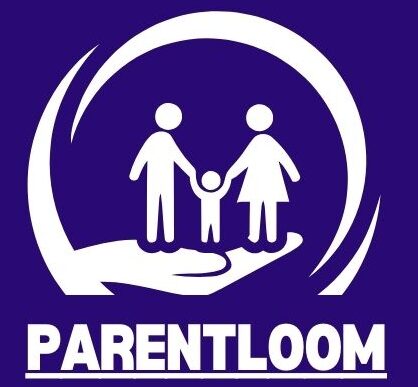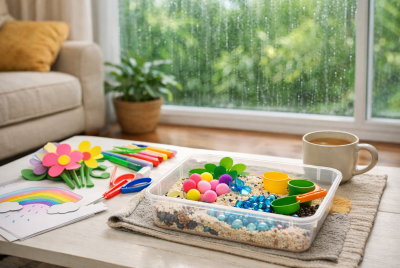Parenting Books: Make Parenting a Little Easier
We may earn a commission for purchases made using our links. Please see our disclosure to learn more.
Parenting. The one job that most of us feel we need help with the most is probably the one that doesn’t have a manual. And parenting books are a great resource for that. There’s always something to learn, regardless of how experienced you are with the game or how many kids you already have. Furthermore, holding a book that says, “Hey, I can help you make sense of this chaos,” has a strangely reassuring quality. Let’s take a look at the world of parenting books, discussing their importance, how to pick one, and what you can truly learn from them.
What Exactly Are Parenting Books, Anyway?
To put it simply, parenting books are small manuals for parents. They are authored by individuals who have either worked with numerous families, studied child psychology, or are parents themselves and have some insight to offer. Consider these as motivational speeches (or reference guides) for each phase of your parenting career.
Why Even Bother with Parenting Books?
It’s a reasonable query. Do we really need books in an era of parenting blogs and Google? The problem is that books, which are authored by professionals who have frequently spent years studying or living what they teach, provide a targeted, methodical approach. Additionally, they are typically supported by science, so you’re not simply getting someone’s arbitrary viewpoint (look at you, social media advise!). Additionally, you can refer back to parenting literature if you’re feeling overwhelmed or stuck.
A Lifeline of Expert Advice
Let’s face it: there are times when we simply need to hear it from an expert. You’re not alone in trying to figure it all out because parenting book authors frequently have credentials in education, pediatrics, or child psychology. It’s similar to having a knowledgeable buddy on call who won’t criticize you for giving your child an extra snack in order to gain some peace and quiet.
Types of Parenting Books You’ll Come Across
There are all kinds of parenting books, which can feel both exciting and overwhelming. Here’s a breakdown to help narrow it down:
Books on Early Childhood Development
These focus on the early years—when you’re obsessed with sleep schedules, figuring out feeding routines, and constantly worrying about whether your kid’s development is on track. They’re perfect if you want to start your parenting journey with a strong foundation.
Books on Discipline and Behavior
These are the ones that help when your little angel is going through, shall we say, “testing boundaries.” They cover techniques for guiding behavior without losing your mind (or patience).
Parenting Books for Teenagers
Got a teenager? Brace yourself. These books tackle the unique, often challenging world of teenage development. They’re filled with tips on communication, setting limits, and helping your teen navigate this crazy, screen-obsessed world.
Mindful Parenting
Mindful parenting is all about slowing down, connecting, and being fully present with your kids. These books help you focus on building a deep, positive relationship with your child. (And they might even make you feel a little zen in the process!)
Self-Care for Parents
Yes, self-care is a real thing, even for parents! These books focus on the importance of looking after yourself so that you can be the best parent possible. Because, let’s face it, parenting can take a lot out of us, and nobody’s at their best when running on fumes.
How to Choose a Parenting Book That Won’t Collect Dust
With so many options, how do you pick the right one? Here are a few tips for choosing a book you’ll actually want to read (and maybe even finish):
Consider Your Kid’s Age
If you have a toddler, a book on teenage development probably won’t be all that helpful right now. Go for a book that addresses your child’s current age or stage. Parenting is tough enough without taking on advice you won’t need for another 10 years.
Identify Your Parenting Style
Are you laid-back or do you prefer a more structured approach? Many books have specific philosophies—like authoritative or attachment parenting—so it’s helpful to find one that aligns with how you want to raise your kids. (Or maybe even helps you discover your style if you’re not quite sure yet.)
Skim Some Reviews
Reviews are a goldmine. They can give you a sense of whether other parents found the book helpful or just way too preachy. Plus, reviews can help you dodge books that might be popular but aren’t actually all that practical for real-world parenting.
Popular Parenting Philosophies Explained
When it comes to raising kids, everyone seems to have an opinion. Over the years, certain philosophies have risen to the top. Here are a few popular ones you might come across:
Authoritative Parenting
This approach is all about balance. It’s firm but fair, encouraging kids to be independent but with clear boundaries. Books on authoritative parenting often stress respect and open communication.
Attachment Parenting
Attachment parenting is all about bonding—think cuddles, co-sleeping, and being super responsive. This philosophy values emotional closeness, and books in this category emphasize a strong parent-child connection.
Free-Range Parenting
Free-range parenting is all about letting kids explore and learn on their own (within reason). It’s a philosophy that promotes independence and resilience. If you want your kids to learn from the world around them, this approach might resonate.
The Benefits of Reading Parenting Books Together as a Couple
Reading together? Yes, it’s a thing! When you and your partner read the same parenting book, it can help you get on the same page—literally. It’s a way to align your parenting styles and talk about the tough stuff with a shared perspective.
The Science Behind Modern Parenting Books
These days, many parenting books are backed by science, diving into everything from brain development to psychology. Having a bit of science behind you can give you that extra confidence in your decisions, especially when facing those tough moments (like endless tantrums).
Books That Emphasize Positive Parenting
Positive parenting books focus on encouraging good behavior by, well, being positive! These books are all about focusing on your child’s strengths, showing empathy, and guiding behavior in a way that builds character.
Parenting Books Are Not Gospel
This one’s important: not every piece of advice will work for you. Just because something’s in a book doesn’t mean it’s set in stone. Parenting books should be tools, not hard rules. Take what resonates, leave what doesn’t, and remember that you know your child best.
Reading Multiple Parenting Books for Perspective
No two kids are alike, and no single parenting approach will work every time. Reading different books can give you a range of perspectives, helping you adapt as you get to know your child better.
Why Real-Life Stories in Parenting Books Matter
Some of the best parenting books include real-life stories, giving you that “I’m not the only one going through this” feeling. (There’s nothing like a relatable story to make you feel a bit more normal on those tough days.)
Parenting Books as Inspiration, Not Perfection
More often than not, parenting books are here to give us a little hope. They offer encouragement, practical tips, and a reminder that you’re doing better than you think. Some days, that reassurance is worth more than any step-by-step guide.
How to Make Parenting Books Work for You
Try to read a parenting book as a guide, not a rulebook. Take notes, highlight parts that speak to you, and test out one or two ideas at a time. The trick is not to feel like you have to overhaul everything; sometimes, a small tweak can make a big difference.
The Gift of Reassurance
One of the best things about parenting books is the reassurance they offer. They remind you that everyone struggles with this job and that you’re not alone. No one has it all figured out—not even the people who write these books!
When to Take a Break from Parenting Books
Yes, there’s such a thing as too much information. If you start feeling stressed from reading all this advice, take a break. Sometimes, stepping away and following your own instincts can be just as valuable.
Exploring the Science Behind Parenting Books: Research-Based Insights on Attachment, Positive Parenting, and Modern Trends
Here are some notable studies and comprehensive reviews that explore the impact and findings related to parenting books and scientific insights on parenting:
Attachment and Positive Parenting Approaches: Attachment theory, which underpins many popular parenting books, emphasizes the importance of a secure emotional bond between parents and children. Research in this area highlights that positive parenting practices, such as responsive and empathetic communication, foster secure attachment and positively affect a child’s social and emotional development. This approach has been supported by studies showing that children with secure attachments generally perform better emotionally and socially. For more insights into the significance of attachment in parenting, a comprehensive review can be found on Frontiers in Psychology.
Science-Based Parenting Guidance: A few books stand out for their emphasis on scientific rigor, such as The Science of Mom by Alice Callahan, which delves into topics like sleep, feeding, and vaccination. The book presents a balanced, research-backed approach to common parenting dilemmas, translating complex scientific findings into actionable advice for parents. Another highly regarded title is The Informed Parent, which provides clear insights on early childhood topics, bridging the gap between research and practical parenting choices. These books are recommended for their clear presentation of evidence-based parenting strategies. Further discussion of research-led books is available in a review by The Conversation.
Current Trends in Parenting Research: Recent studies have expanded the field of parenting science to explore the effects of diverse factors, including the role of genetics, epigenetics, and adverse childhood experiences (ACEs) on child development. These studies examine how these elements influence parenting styles, family dynamics, and the emotional and academic outcomes for children. This evolving field also includes research on modern parenting challenges, such as technology’s impact on child development and the importance of culturally tailored parenting methods. An editorial covering these contemporary trends can be found in Frontiers in Psychology.
These resources offer a scientific lens on effective parenting techniques, providing grounded advice for parents interested in understanding the “why” behind the guidance in many popular parenting books. For those looking to deepen their understanding, the above links lead to full studies and articles on these findings.
Helpful Parenting Products Available on Amazon to Support Your Journey
How to Talk So Kids Will Listen & Listen So Kids Will Talk by Adele Faber
This classic parenting book provides communication techniques that help parents foster cooperation and mutual respect. With practical examples, it’s ideal for improving parent-child communication and reducing power struggles.
The Whole-Brain Child by Daniel Siegel
This book explores brain-based strategies to help children develop emotional intelligence and self-regulation. Using neuroscience insights, it provides actionable steps for guiding children through tantrums, fears, and complex emotions.
No-Drama Discipline by Daniel Siegel
A guide focused on positive discipline, No-Drama Discipline offers strategies to help children learn from their mistakes while strengthening their relationship with parents. It emphasizes understanding the “why” behind a child’s behavior.
This set of activity cards provides mindfulness exercises for children, designed to help them manage emotions, focus, and practice calm. These activities are easy to integrate into daily routines, fostering resilience and self-awareness.
Perfect for introducing kids to yoga and mindfulness, these mats are smaller in size and come in kid-friendly designs. They encourage physical activity and can serve as a base for family mindfulness or exercise time.
Used as a self-soothing tool, calm down jars are filled with glitter and liquid, creating a mesmerizing effect. They can be shaken when a child feels overwhelmed, promoting relaxation and focus as the glitter settles.
Positive Discipline Parenting Toolkit
This toolkit includes activity cards and solutions to encourage positive behavior and problem-solving skills in kids. It aligns with the Positive Discipline philosophy, helping parents guide children in a supportive way.
Summary
So, there you have it! Parenting books are packed with advice, stories, and real-life tips to help you on this wild ride called parenthood. They’re there to guide you, encourage you, and remind you that you’re not in it alone. Take what you need, and don’t feel pressured to adopt every piece of advice. In the end, you’re the expert on your child. Trust yourself, learn as you go, and remember—you’ve got this!
FAQs
1. How do I figure out which parenting philosophy works best for me?
Explore a few different books and see which philosophies resonate. The process is a bit like trying on different outfits; you’ll know which one fits you and your family best!
2. Is it necessary to read a new book for every stage of my child’s development?
It’s not a must, but it can be super helpful. Each stage brings new challenges, so sometimes a new book for each phase can offer fresh advice.
3. Can parenting books replace advice from friends or family?
Not exactly! Books offer expert insights, but personal advice from those who know you and your family is valuable too. The best approach is a mix of both.
4. Are there parenting books just for single parents?
Yes, many books address the unique challenges of single parenting. They provide tips and support tailored to help single parents thrive.
5. What if my partner and I have different parenting styles?
Reading together can help! By discussing books together, you’ll often find ways to compromise and align on key parenting decisions.
Parenting is hard, but you’re not alone. Find a book that speaks to you, dive in, and remember—you’re doing a pretty amazing job already!




